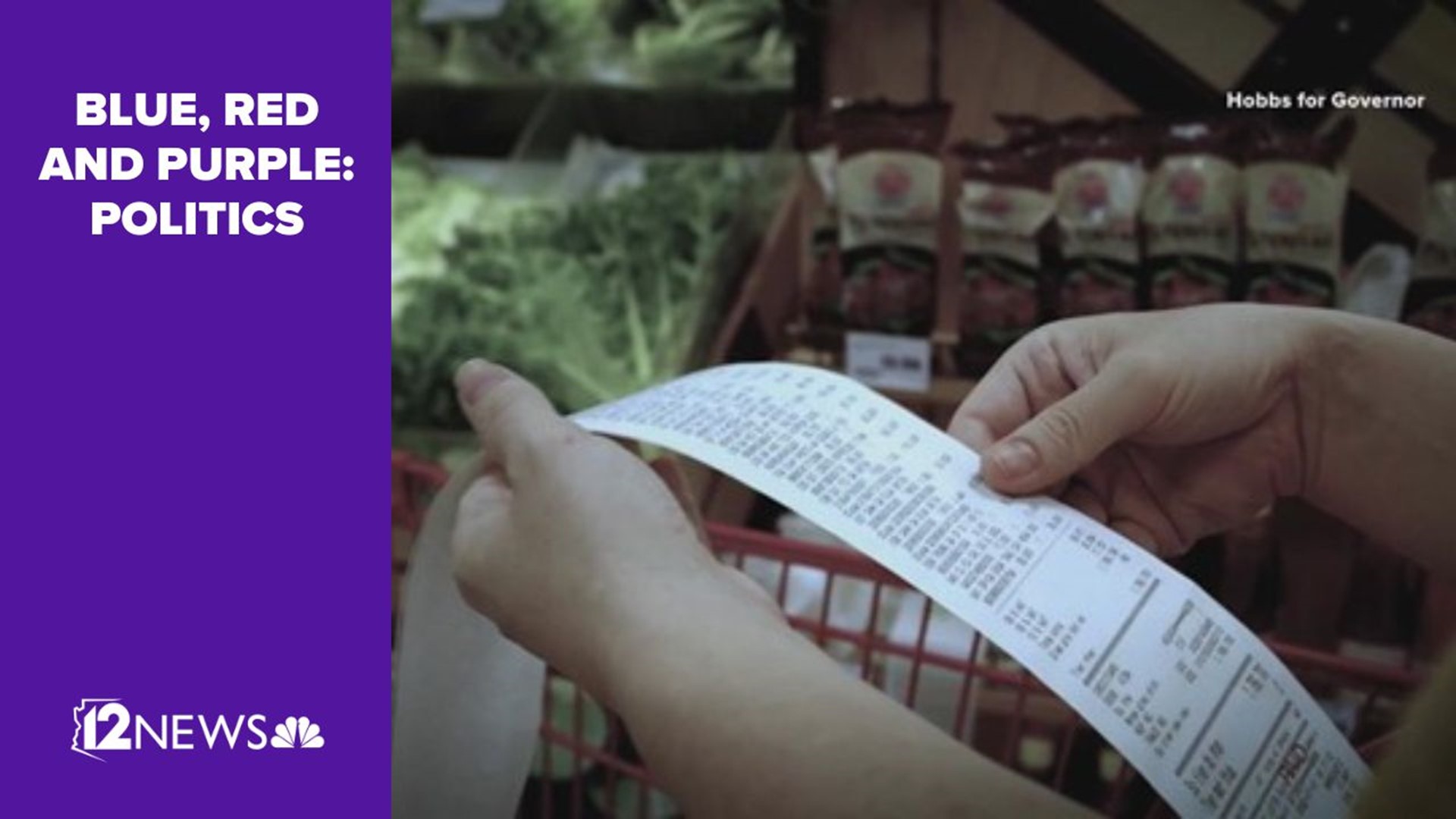PHOENIX — Soaring inflation is the No. 1 issue for many Arizona voters.
That feeling might be most acute here in the Valley, where the 13% inflation rate during the summer was the highest in the country.
How would the next governor's tax policies affect rising prices?
The candidates' tax plans would put more money in Arizonans' pockets. But that might not be a good thing.
I asked Arizona State University economist Dennis Hoffman, who's provided economic advice to every governor over the last 40 years, to "inflation test" the policy proposals from Democrat Katie Hobbs, the secretary of state, and Republican Kari Lake, a former TV news anchor.
How to respond to inflation
Hoffman provided a primer on how a governor and Legislature could respond to rising prices:
"It's too much money chasing too few goods. You fight it by trying to curtail the amount of money that's chasing - and that's decreasing demand," Hoffman said.
"'Too few goods' is remedied by increasing supply - the supply of workers where there isn't enough, the supply of goods and services where there isn't enough."
Trying to curtail consumer demand could require tax increases, a non-starter in Arizona, Hoffman said.
"This is the land of tax cuts. It's not in our DNA to raise taxes."
Increasing the labor supply would take Arizona to another place Republican politicians don't want to go: dealing with immigration.
"We have a tremendous demand for workers in this state. We've got to have an expansion in labor," Hoffman said. "It could come by doing something about legal immigration laws."
More workers could lower wages, which might also lower prices.
Hobbs: Child care tax credit for families
Democrat Katie Hobbs' would target families with a child care tax credit of $250 per child every month.
Hoffman says there are two ways to look at Hobbs' plan.
"If it frees up one of the members of the household, who's not working but has labor force skills, and would like to participate in the labor force... that can help combat inflation," he said.
On the income side, he said, it's a modest amount of money that might benefit lower-income people in a state where upper-income earners have benefitted the most from tax cuts.
Lake: Broaden tax cuts
Republican candidate Kari Lake would step up Gov. Doug Ducey's historic tax cuts.
"We have a policy, we haven't put it out yet, that we will lower taxes every year starting with sales taxes, property taxes," Lake said at a forum on Sept. 7 sponsored by the state's largest business trade group, the Arizona Chamber of Commerce and Industry.
Lake has yet to reveal her tax policy.
She also said at the forum that she would try to finish the job Ducey started by eliminating the income tax.
Ducey's tax cuts will flatten the state income tax rate to 2.5 percent for all earners by 2024. Hoffman says that amounts to a 40 percent tax cut "already in the system."
"Trying to solve inflation by putting more money in people's pockets is like trying to put out a fire with jet fuel," Hoffman said.
"It just doesn't work."
'You've got to pay the bills'
Hoffman also raised a larger question: the impact of across-the-board tax cuts on the state's constitutional obligation to pay for services.
"At some level, you've got to pay the bills," he said.
"The Legislature is on the hook, and the governor's office is there to facilitate. We're on the hook to pay the bills by means of taxation."
Unless, Hoffman said, "you can assume that there are no more bills."
Decision 2022
Track all of our current updates with the upcoming elections in Arizona on our 12News YouTube channel. Subscribe for updates on all of our new uploads.

